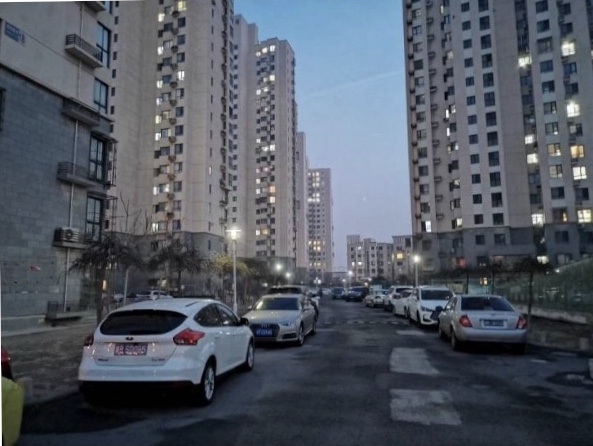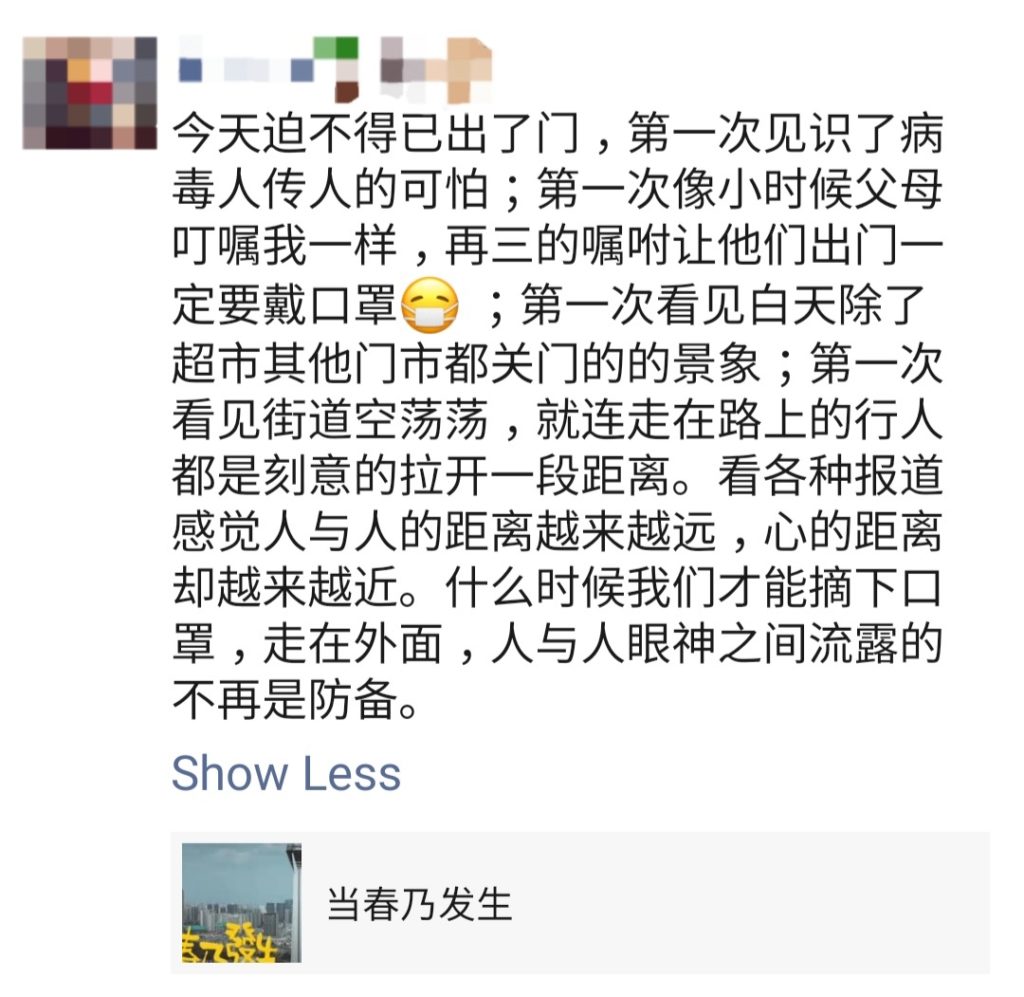
I am grateful to Celine Kuang for the following guest post:
Studied at Shanghai University, August – December 2019
Studied at Southwest Minzu University, January 2020
I’m a double major student in international studies and Mandarin Chinese. I mainly went to China to study the Chinese language and gain a broader cultural experience. I studied at Shanghai University for five months before going to Southwest Minzu University in Chengdu, China. During school breaks, I traveled around China to explore its cities, including Beijing, Nanjing, Hangzhou, Xi’an, Guangzhou, Shenzhen, Zhuhai, Shaoxing, Suzhou, and more. Everywhere I went China emphasized its status of being the most populated country in the world. The virus changed all of China’s populous and vibrant cities to ghost towns within a week’s time. In December is when the virus first started to appear. The Chinese government thought the news would create fear amongst its citizens, so they restricted news of the outbreak. The government was right about fear and as a result, many rumors started going around on social media. One Chinese friend even asked me if the U.S. planted the novel coronavirus outbreak. I was shocked that someone would ask me that, but I answered that it’s not possible. That was only the beginning of a whirlwind of issues.
During Chinese New Year many Chinese migrate back to their parent’s home to celebrate which helped to spread the virus even faster than anticipated. Less than a week into the family gathering, the Chinese government started locking down cities, increasing health checks in neighborhoods, and restricting all forms of travel between cities everywhere. This caused serious traffic congestions and delayed resources from efficiently reaching consumers. I’m not suggesting that China shouldn’t take such drastic measures, but these measures do have economic consequences as many scholars and researchers have already explained. Yet, even more concerning may be the how the necessary resources such as medical face masks (to prevent the virus from spreading) are becoming extraordinarily rare in this short time period. Many people are unable to buy new masks. Some pharmacies even started selling face masks at ten times the original price to seek profit at another’s expense. Some people started to create and sell their own brands of face masks but the quality of the masks is so poor that it can be considered a scam for the less educated populations. My mom informed me of her friend asking if she would buy face masks from the U.S. and send the masks internationally to them. Soon after, the friend told my mom not to bother sending the masks because no packages right now can be received anyway due to travel restrictions all over China. The friend is hoping that steaming and boiling them under hot water would help disinfect the used the masks so the family may continue using them.
I, myself, barely made it out of China during this hectic time. Three days into the Chinese New Year break, the Chengdu program I was in said they’ll continue classes and we’ll all wear masks during lectures. The following day they said they will consider holding lectures through webinars. That next morning I woke up to a classmate knocking on my bedroom door asking for my Chinese visa extension receipt. She told me the assistant resident director will be going to the consulate to get the passports of several others and mine back from the Chinese Consulate. She said I should check the conversation going on in the group chats and that the program is now cancelled. I was dumbfounded that in such a short period of time every changed for the worse. I emailed my scholarship and said I need to return to the U.S. as my program is being cancelled and the heightened travel advisory went from level one to level four in a week’s time. That night I bought plane tickets to leave Chengdu. Besides me there are hundreds of other students on the same scholarship as I am. Two days after receiving numerous emails(including mine), the scholarship sent a mass email out telling us to leave ASAP. We must all leave within eight days they told us.
Every time I read the news it says how many flights are being cancelled between China and the rest of the world. I finally packed everything I needed to leave but one days before my flight it got cancelled. I became worried. I called my airline through an international call for forty minutes to change my tickets. Plane tickets went from around 400 USD to 1000 USD in two days. That’s when I realized the vulnerable situation I was in. I was lucky enough to make it out of China before being infected. To be certain I still went through the fourteen day self-quarantine after I returned to the U.S.
Many Chinese friends have posted on the popular messaging app of China, WeChat, that they hope school would start soon or they can’t stay indoors any longer. Some of them went out for the first time after weeks of quarantine at home with their family. They posted photos of deserted parks, streets, and metro stations. Some posted food they ordered from the few restaurants that are still open during this novel coronavirus outbreak. It is understandable why China is trying to protect the non-exposed population by restricting travel between cities. However, the problem of being able to provide the necessary resources, such as face masks, to citizens throughout China can really hinder the control of the virus. This is only one of numerous issues following that China and the rest of the world has to worry about. In three months’ time the death rate is over 2,100 (this does not include those who died at home without going to the hospital) which is nearly three times the death rate of SARS. Of course, there is the hope that the virus will be controlled sooner rather than later. Currently, over 16,000 have recovered from the virus but how many more will die before the situation is under control? I hope the worse will pass by soon for everyone in China and a cure will emerge for the infected.

